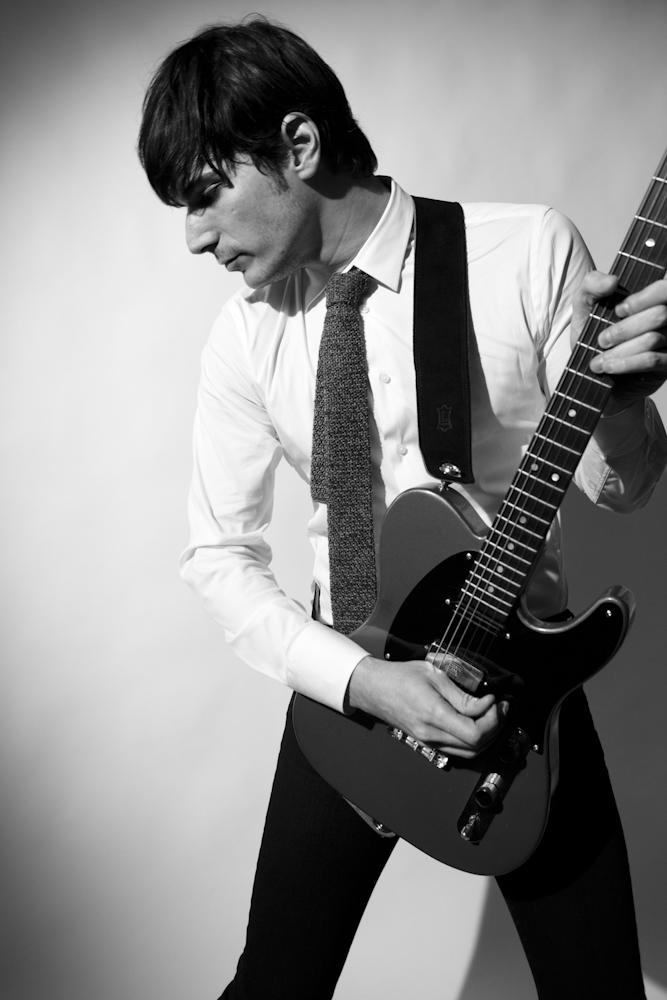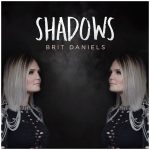NYC Native Carl Gershon is an electro/pop artist with an indie edge. His new song, ‘Like Paradise’ recently premiered with a sound that brings about nostalgia for the ’80s. Listen to it below, and stream/download it here. Carl took time to talk with us about his new music, what it’s like working solo, and what goes into capturing his signature sound.
Your new song, ‘Like Paradise,’ has a distinct ‘80s vibe. How has the music from that decade inspired and influenced you?
Playing guitar most of my life, I have always had major synth envy. In my opinion, the best synth and bass synth sounds are found in ’80s recordings. Also the ’80s were a huge time for guitar. Even dance songs had guitar solos. There were a lot of great players who really pushed the limits of what you could do on the instrument. The best ’80s recordings, I think, are really when the previous 50 or so years of analog recording hit its peak before digital technology started taking over. All of the studio technology and techniques hit their peak then and are now, for the most part, a lost art.
How has living in New York affected your sound? Do you think it’s been easier to pursue music in such a large city, or has it had its challenges, too?
It has definitely influenced my sound. Every live act comes here, every DJ comes here. It’s something I took for granted growing up here until I realized in other parts of the world people will drive hours and hours or even fly to see a concert because that is the only way they can see it. I only had to get in a cab. The only challenge I would say is just there is so much going on here that it can be harder to get people’s attention, but sooner or later you are going to have to get it anyway.
You’ve scored internationally distributed films. How have other forms of art and entertainment, like film, had an influence on your solo work? Does your work on films flow well with your solo music, or do they require separate mindsets and work ethics?
Yes, definitely. I actually have a degree in film. Scores by Jan Hammer, Giorgio Moroder and Harold Faltermeyer have been a huge influence on me. When I am watching a film, I am always listening for how the composer uses timing, volume and arrangements to create different moods, and I try to learn from that for when I am producing my solo stuff. The scoring work I have done myself is very different than my solo work and definitely requires a different mindset. You have a visual you have to relate to. You also have to answer to an editor or a director and are often told what kind of music they want you to make. I learned a lot from doing, and it was always a great creative challenge, but my solo work is more of a full artistic expression for me.
You wrote and co-produced all your new music. What goes into writing your songs, and where do you find yourself getting lyrical inspiration?
The songwriting process can start many different ways for me. Sometimes I am just walking around and come up with a melody and record it into my phone so I don’t forget it, sometimes when I am practicing guitar I come up with stuff, or sometimes I have a Pro Tools session open, and I just start messing with different synths until I come up with something I like. I tend to take inspiration for lyrics from things that are going on in my life or things I see people I know going through. I find I write better lyrics when I am writing about something that happened in the past. This gives me time to reflect and really digest things and also gives it some space to be less literal and more poetic.
In addition to writing and co-producing all your new songs, you performed all the vocals and instruments as well. What’s it like performing all these instruments and getting them to come together for a single song?
It can definitely be exhausting sometimes because I only get to take a break when we are editing. I usually have the whole arrangement in my head, so getting it to come together is pretty natural, although it does take some planning, as it makes sense to lock in certain instruments first. I have a great engineer/co-producer, Steve “The Mix King” Sola, who definitely knows how to keep me from getting overwhelmed when things don’t work out exactly as I had planned them.

You’ve been the lead guitarist in a few bands before deciding to go solo. How has it been having more control over your music?
It’s great when no one in the “band” shows up to a session drunk or high. The singer never loses his voice cause he was up all night partying. Don’t get me wrong, I love collaborating and really miss just playing guitar in a band, but this way is much more rewarding for me right now.
Do you remember the first song you ever wrote?
Yes I do. I was 4 years old and was in some kind of kids’ music program, and I had to perform it at the recital. I think it was called “The Happy Song”. No, you can’t hear it.
If you could sit down and have a one-on-one talk with any musician, living or dead, who would you pick? What would you talk with them about, and what questions would you ask them to help you with your career?
That is so tough to answer. Anyone I would pick I would be more interested in their stories from the studio or the road rather than career advice, just to hear the great stories.. Some I would pick just to nerd out talking about guitars and gear. Maybe I would pick Nile Rogers just because he has worked with so many of my favorite artists, and he is also a guitar player.



